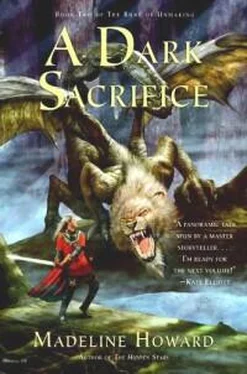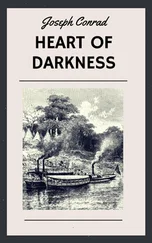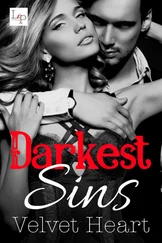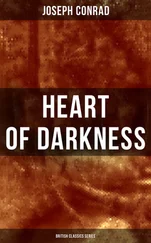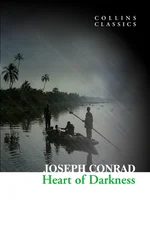Yri(eerie) King of Reichünterwelt. This dwarf of immense age (far in excess of two hundred years) was a powerful seer whose other gifts included the ability to talk with animals.
Ëanor—Time
Ëanoris—Times of the Year
lüenien—year, solar cycle
lüerin—month, lunar cycle
Oerinora(“cold time”)
Néosora(“dark time”)
Réomiora(“ice time”)
Siôdora(“storm time”)
Weridanni(“roots”)
Syviri(“stems”)
Duilligor(“leaves”)
Ariénora(“bright month”)
Uenora(“heat month”)
Ffarwid(“fruit”)
Grianë(“grain”)
Séarnid(“withering”)
Wisigiri(“rains”)
illüerinhalf-month, fortnight
gäeäwinter
cormathspring
samhradsummer
hafenautumn
Ëanoril—Times of the Day
elüidaytime
nëosnight, darkness
elioa day and a night, the time between one sunrise and the next
noëbrightening, dawn, morning
érienbrilliant, noon
yffarianwaning light, afternoon
anoëdimming, twilight, evening
anëruiabsence of light, midnight
malanëosutter darkness, the time between midnight and first light
lüenodisunrise
ellüensunset
lüerodimoonrise
ellüermoonset
Niadhélen
Niadhélen (“the language of the ancients”) was the first language; according to religious and magical texts, it was the language given by the Fates to all sentient creatures, so that all living things might live in harmony and perfect communication. As time went on, and the races and nations became more and more estranged, more and more distrustful, they began to create their own languages as a way of hiding their secrets and keeping their knowledge to themselves. Eventually, there were hundreds of different languages, some having their roots in Niadhélen, some having no relation at all to this most ancient of tongues.
By the latter days of the Empire, no one spoke Niadhélen in everyday speech, although an incomplete lexicon was still in use as the language of scholarship, diplomacy, magic, and prayer.
Its association with magic was this: In the animistic worldview held by most magicians, animals (béodani) had a sentience only a little below that of Men, dwarves, Faey, etc.; plants (pléanhir) were sentient to a lesser degree, and even some of the elements (the éolfani) and metals (ora) had the bare beginnings of sentience. As all these had an instinctive understanding of Niadhélen, the magician, in commanding or communicating with them, framed his or her spells in Niadhélen.
It was a belief widely held that the children of Men and other speaking races (the dhin, people) were born with an instinctive understanding of Niadhélen, but lost most or all of it by the time they were able to speak. For this reason, lullabies were often sung in Niadhélen; infants were supposed to understand the words even if their nursemaids did not. One indication of a gift for magic was a young child’s retention and understanding of a few words or phrases in the ancient tongue. Yet no one retained more than that, and young wizards and sorcerers were obliged to study Niadhélen in order to reacquire, by painstaking effort, a fragmentary version of the language they had understood (but were unable to use) perfectly and completely at birth.
Which leads to another, nonanimistic theory (held only by a few) about the use of Niadhélen in magic: that the words of the spell were used not to communicate or command, but to create a higher mental state in the magician, by opening up a part of the mind that still knew and understood the first language—and was therefore in communication with the higher powers, or Fates, by whom Niadhélen had been given in the beginning.
Magicians who practiced the black arts were the exception. They could hardly invoke powers of Darkness by using the language of the Servants of the Light; another language was therefore used to invoke the Dark and its creatures. However, while white magicians never resorted to the dark arts, black magicians were perfectly willing to use the elemental magics practiced by wizards, any time that it suited their purposes. Even Ouriána and the Furiádhin spoke most of their spells in Niadhélen.
The Elements
Magicians believed there were eight elements: four anelfani (inanimate elements) and a higher form of each of these, the éolfani (animate elements).
It should be noted that in the case of darkness and light, the elements by those names are not to be confused with the greater Darkness and the ultimate Light of religion, to which they bear only the faintest shadow of a resemblance.
Anelfani—Éolfani
nëos (darkness) daer (animate darkness, earth)
erüi (light) féal (animate light, fire)
ael (air) anad (animate air, wind)
nim (mist) uinn (animate mist, water)
Spells
aneirëoa destiny altered by ill-doing or black magic.
aneiriasa curse, a plea to higher powers to strike down an enemy or an oppressor. This was regarded as a deplorable act by truly pious people, though it was occasionally employed by the overzealous and self-righteous.
aniffatha doom, a curse, or an ill wishing against a person or a group of persons, or on some purpose or enterprise they might enter into together (for instance, a marriage or a treaty). It was, however, a very specific and complex kind of curse. Unlike an aneirëo, which could be spat out on the spur of the moment or on one’s deathbed, an aniffath took time, care, and considerable power to create. It was the very blackest kind of sorcery. In theory, it could be undone, but its complexity and its ability to mutate and to take a new (though equally malign) direction whenever steps were taken to block its effects made this almost impossible.
béanatha charm of blessing. A spell meant to protect an individual or group of people against a specific danger, or to wish them well in some endeavor.
eiriasa prayer to the Light or to Servants of the Light; a plea for the Fates to intercede.
eirëo“destiny” In particular, an individual’s personal destiny. As this was something assigned by the Fates at the beginning of one’s life, it was believed to be always beneficial—or at the very least tending toward enlightenment—but it could be altered for the worse by bad acts or by sorcery.
illedrionliterally, a little spell or enchantment. A verse, a poem, or a riddle.
lledriona charm or a spell, generally used to mean magic practiced on nonliving objects or to control the elements—to light a candle, for instance, or to call up a wind. Placing no limits or bindings on sentient creatures, these spells were regarded as White Magic.
shibeatha healing charm or a protective charm without the element of blessing.
waethaga black sorcerer’s familiar spirit, or any undead or immaterial thing under a sorcerer’s spell. Also, a sorcerous illusion.
Читать дальше
